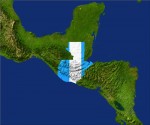Translate Lex Sustineo
Showing posts with label labour. Show all posts
Showing posts with label labour. Show all posts
Tuesday, February 11, 2014
The Challenges of Running Responsible Supply Chains
NYT blog post by Laura D'Andrea Tyson discussing some of the leading initiatives and challenges for the promotion of labour and health and safety standards through supply chains. Of particular interest to those grappling with the application of the Guiding Principles on Business and Human Rights in the supply chain context.
Tuesday, September 10, 2013
Corporate liability for human rights violations in Canada?
 Can a Canadian parent company with a subsidiary operating in a foreign jurisdiction be liable for human rights
violations in the foreign jurisdiction that occur at the level of the subsidiary? Janne Duncan, Michael Torrance and Janet Howard discuss a recent decision in which a Canadian court has
allowed this issue to proceed to trial. Whatever the outcome at trial where issues of liability will ultimately be determined, one thing is clear: international public expectations are changing, and directors and officers of Canadian companies need to be aware of the potential risk of claims by foreign plaintiffs seeking redress for alleged harm committed beyond Canada’s borders.
Can a Canadian parent company with a subsidiary operating in a foreign jurisdiction be liable for human rights
violations in the foreign jurisdiction that occur at the level of the subsidiary? Janne Duncan, Michael Torrance and Janet Howard discuss a recent decision in which a Canadian court has
allowed this issue to proceed to trial. Whatever the outcome at trial where issues of liability will ultimately be determined, one thing is clear: international public expectations are changing, and directors and officers of Canadian companies need to be aware of the potential risk of claims by foreign plaintiffs seeking redress for alleged harm committed beyond Canada’s borders.
Labels:
ATS,
CSR,
Equator Principles,
fpic,
free prior and informed consent,
global compact;,
human rights,
IFC Performance Standards,
indigenous rights,
labour,
mining,
project finance,
stakeholder
Wednesday, July 10, 2013
Human Rights Due Diligence in International Finance
 Revisions to the Equator Principles (EP) have created new requirements for businesses to conduct human rights due diligence in order to qualify for financing from 79 of the world’s largest financial institutions. The EP apply globally to all project financing with a value of over $10 million and to certain types of corporate loans, bridge loans and project finance advisory services. This development brings the importance of human rights due diligence beyond reputational risk management and ties it directly to access to capital for many companies. It also significantly increases the significance of human rights considerations for the financial industry.
Revisions to the Equator Principles (EP) have created new requirements for businesses to conduct human rights due diligence in order to qualify for financing from 79 of the world’s largest financial institutions. The EP apply globally to all project financing with a value of over $10 million and to certain types of corporate loans, bridge loans and project finance advisory services. This development brings the importance of human rights due diligence beyond reputational risk management and ties it directly to access to capital for many companies. It also significantly increases the significance of human rights considerations for the financial industry.Thursday, June 27, 2013
U.S. to Suspend Trade Privileges With Bangladesh Over Labour Safety Standards
 The NYT reports that the Obama administration on Thursday will suspend trade privileges for Bangladesh over concerns about safety problems and labor rights violations in that country’s garment industry, according to administration and Congressional officials. This follows a factory building collapse there in April, killing 1,129 workers, and a factory fire killing 112 workers last November. See full article here.
The NYT reports that the Obama administration on Thursday will suspend trade privileges for Bangladesh over concerns about safety problems and labor rights violations in that country’s garment industry, according to administration and Congressional officials. This follows a factory building collapse there in April, killing 1,129 workers, and a factory fire killing 112 workers last November. See full article here.
Wednesday, May 29, 2013
Managing Lender Liability in Equator Principles Implementation - Third Party Beneficiary Rights in Contract Law
 I read an interesting and provocative journal article by Marissa Marco, published in the Fordham International Law Journal in 2011, entitled "Accountability in International Project Finance: The Equator Principles and the Creation of Third-Party Beneficiary Status for Project-Affected Communities". The article discusses the law on third party beneficiary rights under US contract law and considers whether the provisions of the Equator Principles (EP) relating to Affected Communities might create enforceable rights for those communities under those principles.
I read an interesting and provocative journal article by Marissa Marco, published in the Fordham International Law Journal in 2011, entitled "Accountability in International Project Finance: The Equator Principles and the Creation of Third-Party Beneficiary Status for Project-Affected Communities". The article discusses the law on third party beneficiary rights under US contract law and considers whether the provisions of the Equator Principles (EP) relating to Affected Communities might create enforceable rights for those communities under those principles.This article will discuss this issue and suggest a risk management strategy for EP Financial Institutions (EPFI - i.e. EP signatories) addressing and managing such risks in Equator Principles implementation.
Thursday, May 23, 2013
New York Times: U.S. Retailers See Big Risk in Safety Plan for Factories in Bangladesh
 The New York Times reports that American retailers remain sharply opposed to joining an international
plan to improve safety conditions at garment factories in Bangladesh as
their European counterparts and consumer and labor groups dismiss the
companies’ concerns about legal liability. Full article here.
The New York Times reports that American retailers remain sharply opposed to joining an international
plan to improve safety conditions at garment factories in Bangladesh as
their European counterparts and consumer and labor groups dismiss the
companies’ concerns about legal liability. Full article here.Thursday, May 2, 2013
Reflections on Migrant Labour in China - Application of IFC Performance Standards and Equator Principles
Wednesday, April 17, 2013
Addressing Substantial Legal Restrictions on Freedom of Association in Equator Principles Projects
Freedom of Association may be substantially restricted by law in some countries. This reality creates complex challenges for Equator Principles (EP) implementation, since the requirements of the Equator Principles require compliance with host country laws and in some cases addressing the overlapping and interrelating requirements of the IFC Performance Standards on Environmental & Social Sustainability (IFC Performance Standards).
As we discuss in this article, the IFC Performance Standards establish standards for the protection of Freedom of Association rights, even in circumstances where the law substantially interferes with those rights.
As we discuss in this article, the IFC Performance Standards establish standards for the protection of Freedom of Association rights, even in circumstances where the law substantially interferes with those rights.
Thursday, March 7, 2013
Technical Revision of the World Bank Group Environmental, Health, and Safety Guidelines
The World Bank Group has begun a three-year process to review and update its Environmental, Health and Safety (EHS) Guidelines. More information can be found on the International Finance Corporation (IFC) website HERE.
The EHS Guidelines are technical reference documents with general and industry-specific examples of Good International Industry Practice (GIIP). They contain the performance levels and measures that are normally acceptable to the World Bank Group, and that are generally considered to be achievable in new facilities at reasonable costs by existing technology. They are used by the World Bank, IFC and Multilateral Investment Guarantee Agency (MIGA).
The EHS Guidelines are technical reference documents with general and industry-specific examples of Good International Industry Practice (GIIP). They contain the performance levels and measures that are normally acceptable to the World Bank Group, and that are generally considered to be achievable in new facilities at reasonable costs by existing technology. They are used by the World Bank, IFC and Multilateral Investment Guarantee Agency (MIGA).
Subscribe to:
Posts (Atom)

